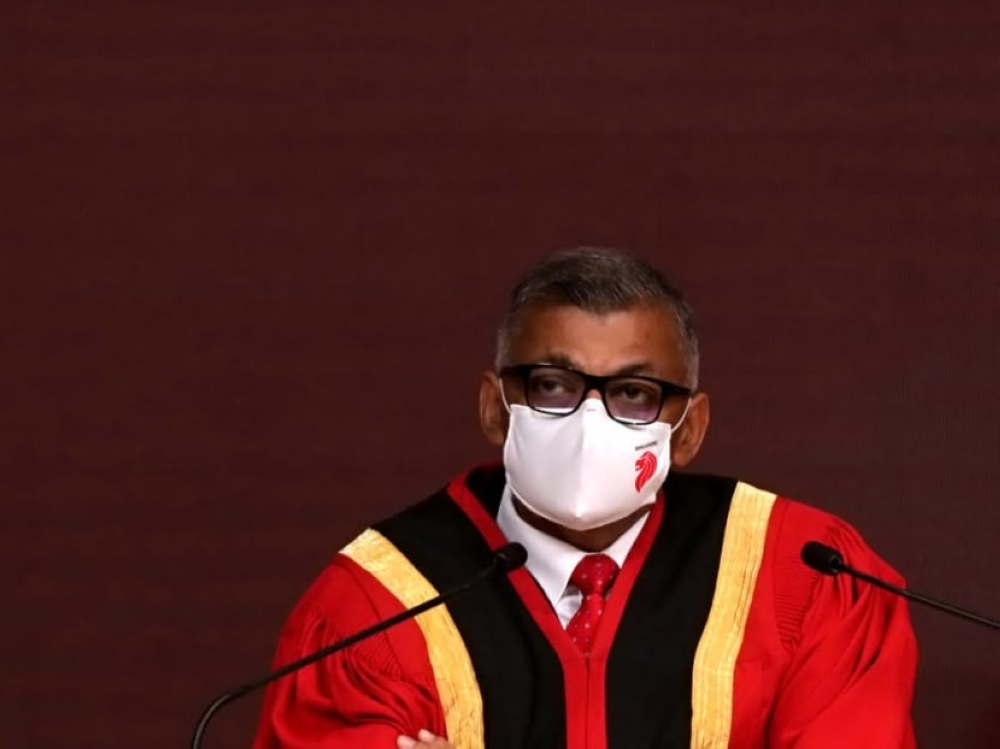JANUARY 10 — On Monday, January 8, 2024, the Malay Mail reported on the need expressed by the Singapore Chief Justice to incorporate better ethics training in legal education. Opening the Singapore legal year, Chief Justice Sundaresh Menon made reference to a report published recently by the Singapore Working Group for the Reform of Legal Education. That report stated: “Law schools should continue to expressly [sic] teach professional ethics and conduct standards in the context of legal practice through discrete modules and/or as applied ethics within existing substantive law course”. There is also a call in the report for the experiential learning of professional ethics.
Experiential learning of professional ethics is not new but the execution and successful delivery of this type of ethics learning have proved often to be a challenge for many a determined law school. The reason? A reason might be the lack of academic teachers of law who are sufficiently versed or trained in the pedagogy of ethics education. Another powerful reason is the lack of importance given to the matter by practitioners and students alike. Some practitioners, including very highly influential ones, sadly pay mere lip services to the subject and often through their “war stories” triumphally relayed to students in their formative years give a thoroughly cynical impression of the role of ethics in legal practice. Moreover, in the go-getting environment of the law school, many students find little time for issues of legal ethics. For lawyers and law students, the essence of legal education is often the acquisition of knowledge and legal skills. Intellectual discourse and ethics are sometimes quite far down the “values” chain. It would have been interesting, for example, to peer into the minds of many of those attending the Opening of the Legal Year at Singapore listening to Chief Justice Sundaresh Menon’s speech. Pessimists might wonder how many lawyers even saw the issue as important, in our highly materialistic environment.

At the Faculty of Law, Universiti Malaya, this new Dean is pleased to stress that experiential learning of professional ethics was introduced earlier this year. Experiential learning is broadly defined as learning by doing. In professional legal ethics, historically the matter is (a) treated as an academic subject and (b) taught by traditional means, such as lectures and tutorials. There is a problem such a position. Ethics concern not merely head knowledge of rules and norms but also a cultural mindset. Changing or influencing culture is not easily achieved through traditional chalk and talk. Ethical challenges need to be felt and experienced. The learner needs to be challenged and inspired to interrogate their own value system. Placing the subject purely as subject requirement for qualifying as a lawyer diminishes the real importance of ethics. Many regulators and professional bodies often equate making ethics a compulsory course as ensuring effectiveness of outcome. That is misplaced.
It is also needful to remember that ethics involves the proper cultivation of ethical reasoning — ethics are not merely a set of rules and principles. They need to be engaged in how we make legal and non-legal reasoning. Ethical reasoning helps the individual become attuned to the moral dimensions of their decisions and actions.
At Universiti Malaya, students in the final year undertake a module called, by a somewhat unimaginative title, “Law Firm Management”. Ethics and professional conduct of lawyers form part of the curriculum and as hitherto been delivered as alluded to above in the traditional setting. That course has been revamped to place students in various ethics settings and they are then encouraged to apply ethical reasoning to solve moral and professional conduct related problems. We also see the need to place the learning of ethics in the wider context of running and working in a law office environment. Hence, issues of ethical reasoning are woven into other organisational and operational issues such as client care, marketing, financial pressures, human resource constraints, technological and AI influences etc. Ethical and professional conduct extend beyond client relationships but every aspect of the operations of the firm.
The faculty works closely with Mr Lee Ji En, CEO of Chambers Lab, to provide real life settings for students to draw from in their hands-on learning. The students learn through worked through case studies of how law practices are not only set up and maintained in a commercially effective and efficient manner but to learn to make ethical decisions and apply ethical reasoning in firm management related problems. By raising ethical considerations in a law office setting, students are equipped with the tools to navigate the delicate balance between legal obligations and moral responsibilities.
The faculty upon completion of this pilot project will look at introducing even more experiential learning opportunities in the subject. In the pipeline is a proposal to offer students a chance to participate in a “law practice hackathon”. The germ of idea comes from corporate hackathons often used in business technology courses. Translated into the law curriculum, students would work in teams to design, code and use software and other tech-based solutions to solve set problems for law firms and their operations. However, what is especially exciting is the accommodation of professional conduct and ethical reasoning in finding tech-based solutions for law firms. This ethics-guided perspective can serve as a powerful antidote to the dehumanisation often associated with legal processes and technology use, fostering a legal profession that is more responsive to the diverse needs of society.
As the world becomes ever more tech-oriented, it is vital that our humanity, as represented by our ethics, should not be lost.
* Prof Dr Jason Chuah Chin Tik is Dean of the Faculty of Law, Universiti Malaya.
** This is the personal opinion of the writer or publication and does not necessarily represent the views of Malay Mail.





















